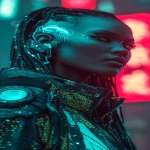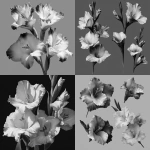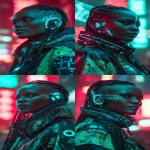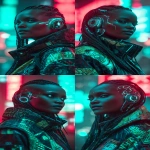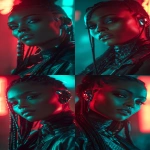Explore the Best AI Image Gallery

Beyond the Canvas: Blockchains Impact on the Creative Industry
The world of art and creativity is undergoing a profound transformation fueled by the emergence of groundbreaking technologies. Among these, blockchain technology stands out as a game-changer with the potential to revolutionize how creative works are produced, distributed, and valued. This blog post explores the multifaceted impact of blockchain on the creative industry, examining its applications, ethical considerations, and future trends.
Applications: Empowering Creatives
- Digital Ownership and Authenticity: Blockchains immutable ledger provides artists with a secure and transparent way to establish verifiable ownership of their digital creations. NFTs (Non-Fungible Tokens) serve as unique digital certificates of authenticity, guaranteeing the originality and provenance of artworks.
- Direct Connection with Fans: Blockchain empowers artists to connect directly with their fans, bypassing traditional intermediaries. Platforms built on blockchain allow for peer-to-peer transactions, enabling artists to receive royalties directly from sales and engage in more meaningful interactions with their audience.
- New Revenue Streams: Blockchain opens up exciting new revenue streams for creatives. Fractional ownership of NFTs allows for the democratization of art ownership, making it accessible to a wider range of individuals. Artists can also leverage smart contracts to automate royalty payments and create innovative funding models.
- Collaborative Creations: Blockchain facilitates collaborative artistic endeavors by enabling secure and transparent tracking of contributions. Multiple artists can contribute to a single artwork, and their individual roles can be recorded on the blockchain, ensuring fair attribution and compensation.
Ethical Considerations
While blockchain offers immense potential for the creative industry, it also raises several ethical considerations that require careful attention:
- Environmental Impact: The energy consumption associated with certain blockchain networks has raised concerns about their environmental footprint. It is crucial to explore more sustainable blockchain solutions and promote responsible development practices.
- Accessibility and Inclusion: Ensuring that blockchain technology is accessible to all creators, regardless of their technical expertise or financial resources, is essential for fostering inclusivity within the creative community.
- Copyright and Intellectual Property: The decentralized nature of blockchain presents challenges in enforcing copyright and intellectual property rights. Establishing clear legal frameworks and best practices is crucial for protecting the work of artists.
- Algorithmic Bias: AI-powered tools used in conjunction with blockchain can inadvertently perpetuate existing biases, leading to unfair or discriminatory outcomes. It is important to address algorithmic bias and ensure that these technologies are used ethically and responsibly.
Future Trends
The intersection of blockchain and the creative industry is constantly evolving. Several emerging trends are shaping the future:
- Metaverse Integration: Blockchain-based metaverse platforms will provide immersive experiences for artists to showcase their work, connect with audiences, and create interactive installations.
- Decentralized Autonomous Organizations (DAOs): DAOs can empower creative communities by enabling collective decision-making, resource allocation, and the governance of shared creative projects.
- AI-Powered Creativity: AI tools will increasingly assist artists in generating new ideas, composing music, and creating visually stunning artwork, pushing the boundaries of artistic expression.
- Tokenized Rights Management: Blockchain can streamline the management of intellectual property rights, enabling creators to control the use and distribution of their work.
Blockchain technology has the potential to redefine the creative landscape, empowering artists, fostering collaboration, and opening up new avenues for innovation. By embracing its transformative power while addressing ethical considerations, we can unlock a future where creativity flourishes in unprecedented ways.
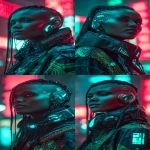

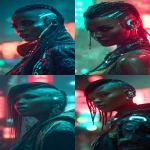

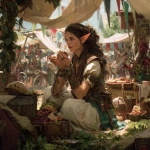
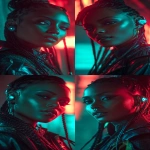
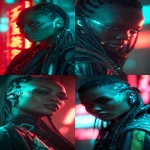


](https://images.ai-img.art/thumbnails/150/916a8f2aa9c13d051af4ab588a4921732f41e144150bdfc78853a28500cd717d.webp)
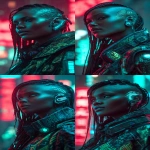
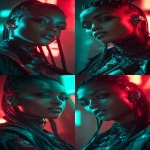
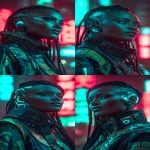



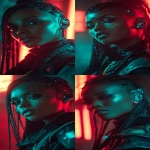
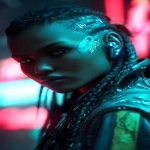
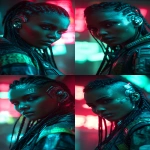




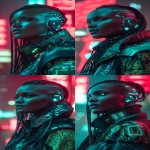
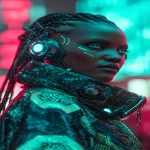
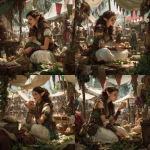
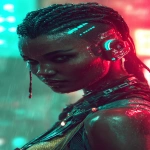
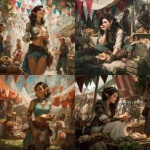
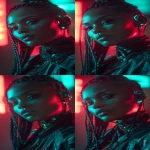
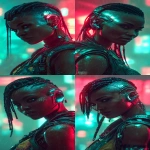
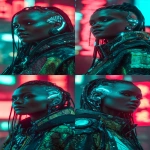
](https://images.ai-img.art/thumbnails/150/0791636c23fa42b3fd87dbe2541b7d3047cdb4d5fc0dab19f4efcfe1439963da.webp)



](https://images.ai-img.art/thumbnails/150/ffdc3aeb085cdd89cb67916c26208f25e7c7b0250ad6e5877b48414760697a90.webp)
](https://images.ai-img.art/thumbnails/150/6b15b97ffd39aeb1b066fd2c8b33c1a2dd03a3966282ec6508e2c2c205c0360f.webp)


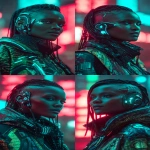

](https://images.ai-img.art/thumbnails/150/477a6a01318cd965f7f5f6ecc623f70e7e61f0004811369ce0977db761aecd57.webp)
](https://images.ai-img.art/thumbnails/150/08baaaca8d12502f281846feba6b0cf89edf106843ff56346812f5eec39eeed1.webp)
